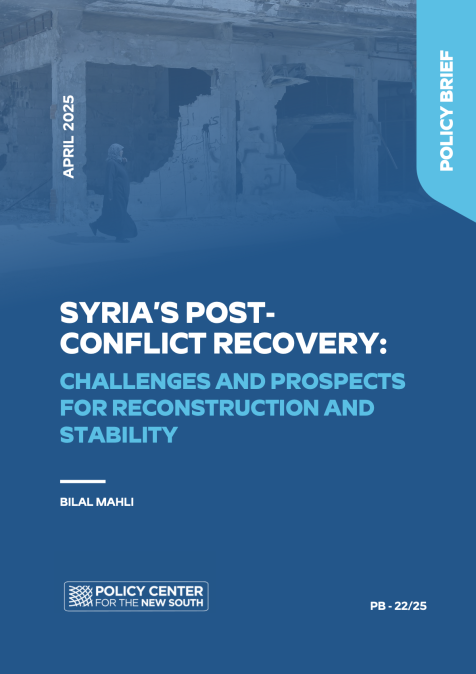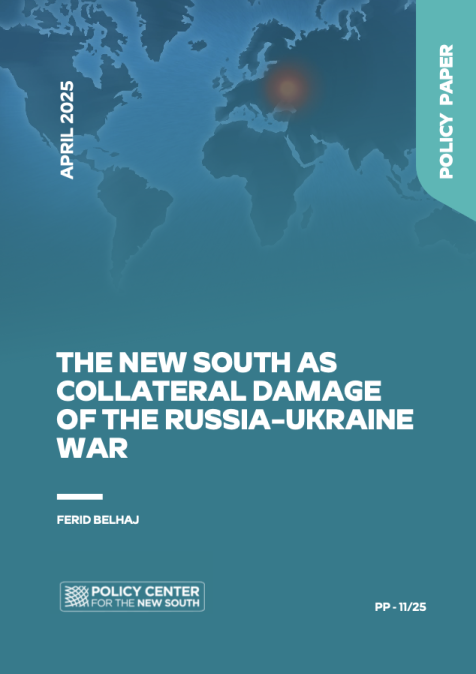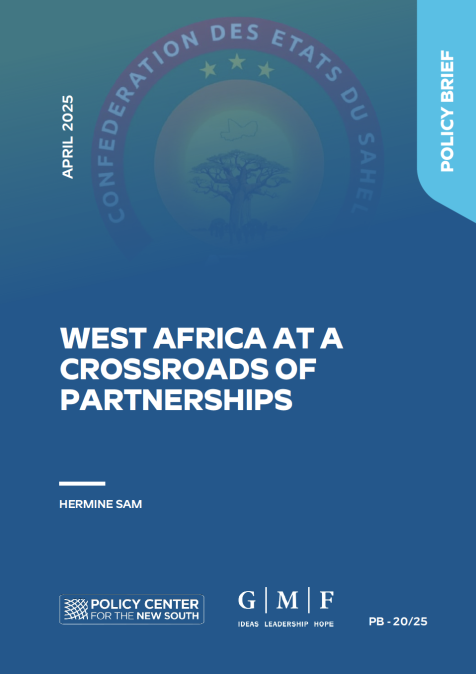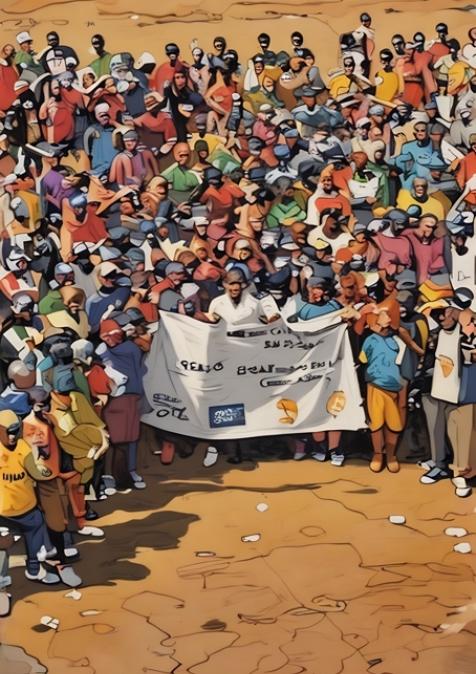يخصص مركز السياسات من أجل الجنوب الجديد حلقة برنامجه الأسبوعي "حديث الثلاثاء" لقراءة التطورات الحاصلة 2022 يوليوز 25بتونس، منذ إعلان حالة الإستثناء يوم مع عبد السلام جلدي، باحث في العلاقات الدولية والسياسات العامة بمركز السياسات من أجل الجنوب الجديد وياسمين وردي عكريمي، باحثة بمركز بروكسل الدولي
نعود خلال هاته الحلقة إلى فحص الأزمة الدستورية التي تعيشها تونس منذ إعلان حالة الإستثناء التي حولت البلاد من ديمقراطية في أزمة إلى نظام استثنائي ، فضلاً عن خصائص الجمهورية التونسية الثالثة، في ظل أزمة اقتصادية و إجتماعية حادة تهز البلاد وتهدد ماليتها بالإفلاس
Speakers

Akram Zaoui
Chargé de Mission to the Executive President
Akram Zaoui is a Senior International Relations Specialist and Chargé de Mission to the Executive President at the Policy Center for the New South (PCNS). Prior to this, he was Manager of Research Support and the Public Policy Lab at the PCNS. His main area of interest is the geopolitical economy of the Extended Middle East and North Africa (MENA) region.
From 2018 to 2020, Zaoui was the coordinator of a network of 70+ civil society organizations (CSOs) across France, working with foundations, government, local communities, and the private sector.
Zaoui holds a dual degree in corporate and public management from HEC Paris and Sciences Po, as well as a bachelor's degree (licence) in history from Université Paris 1 Panthéon-Sorbonne. He audited courses in Iranian and Shia Stud ...

Abdessalam Saad Jaldi
International Relations Specialist
Abdessalam Jaldi is an International Relations Specialist, with a focus on International Law and International Relations. He is currently working in the Policy Center for the New South as a core member of an analytical study examining the Maghreb mutations, the Euro-African relations, the new tendencies of international law and the influence of India and Africa. Ph.D Doctor in Law from France in 2018, he has four years of experience working in non-profit, social research and electoral observations.
...

Yasmine Akrimi
Analyste de recherche sur l'Afrique du Nord au Brussels International Center (BIC)
...









